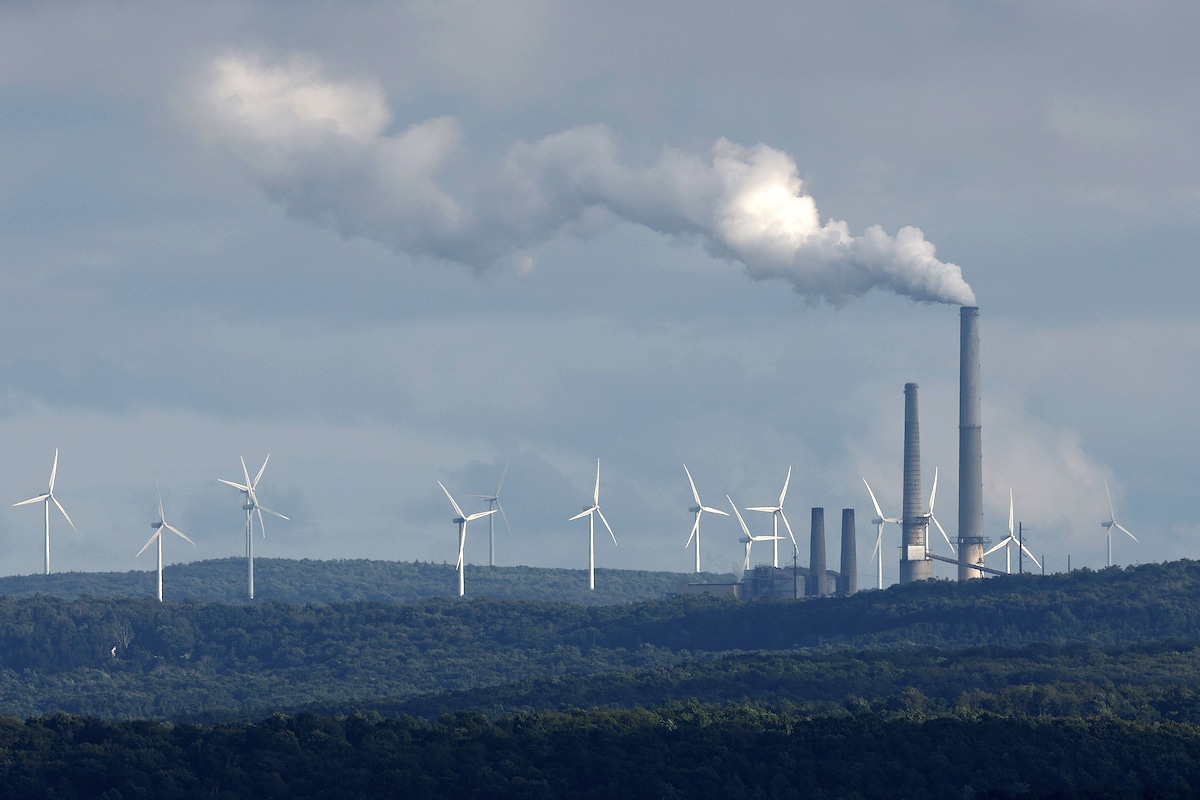Clean Energy Projects Surge Following Passage of Climate Bill

 Why you can trust us
Why you can trust us
Founded in 2005 as an Ohio-based environmental newspaper, EcoWatch is a digital platform dedicated to publishing quality, science-based content on environmental issues, causes, and solutions.
Since the passage of the Democrats’ Inflation Reduction Act — which provides $369 billion for climate and energy spending, including renewable energy incentives and programs to reduce pollution and address the disproportionate harms to disadvantaged communities due to climate change — many corporations have announced plans for costly clean energy projects, reported The New York Times.
Global investment in clean energy is projected to rise to $1.4 trillion this year, according to the International Energy Agency (IEA)’s most recent annual report on global energy investment, making up nearly three-quarters of overall energy investment increases.
The yearly average growth rate for global renewable energy investment has risen from just over two percent in 2015, following the Paris Climate Accords, to 12 percent since 2020.
“Renewable power is at the heart of the positive trend; even though costs have risen in recent months, clean technologies such as wind and solar PV remain the cheapest option for new power generation in many countries, even before accounting for the exceptionally high prices seen in 2022 for coal and gas. Renewables, grids and storage now account for more than 80% of total power sector investment,” the IEA report stated.
One example of big corporate investment in renewable energy is Honda and LG Energy Solution’s joint agreement to build a $4.4 billion factory to produce batteries for electric vehicles (EVs), The New York Times reported. Batteries won’t be produced at the plant until 2025.
Mining company Piedmont Lithium also announced it will build a processing plant for lithium to be used in batteries in order to lessen U.S. reliance on refineries in China.
Additionally, First Solar intends to invest as much as $1.2 billion for its fourth U.S. factory, due in great part to the incentives for renewable energy investment in the climate legislation.
“We’ve seen an outpouring of interest from all kinds of companies,” said Isaac Chan, a partner in management consultancy Roland Berger who advises clients in the auto industry, as reported by The New York Times. Chan said the climate package “makes the calculus better for producing in North America as opposed to making E.V.s in Asia and importing them.”
According to industry representatives and analysts, building the infrastructure needed to supply renewable energy to the country and meet its climate goals remains a challenge.
Farmers and landowners, as well as businesses and environmentalists, are concerned about power lines going across farmland and offshore wind farms being installed in close proximity to fisheries.
The raw materials needed to build batteries also present hurdles. While many provisions in the law are meant to incentivize producers of batteries and vehicles to buy materials like lithium and nickel from North American distributors or from trade allies of the U.S., there is just one lithium mine in the U.S., operated by Albemarle, and it only produces a fraction of what is needed for the auto industry. The lithium also has to be refined overseas.
Albemarle’s goal of establishing U.S. refineries and further mining developments will be aided by funding from the climate legislation, said Albemarle’s vice president for government and community affairs Ellen Lenny-Pessagno, as The New York Times reported.
The climate bill’s requirements for the amount of raw materials and components of a battery that must originate in the U.S. or with its trade allies become increasingly strict over time.
EVs could end up being less expensive than gas-powered cars once supply chains are reworked and adhere to the provisions of the new law.
“This legislation is a true game-changer. It will create jobs, lower costs, increase U.S. competitiveness, reduce air pollution,” said former Vice President Al Gore, as reported by The Associated Press. “The momentum that will come out of this legislation, cannot be underestimated.”
Subscribe to get exclusive updates in our daily newsletter!
By signing up, you agree to the Terms of Use and Privacy Policy & to receive electronic communications from EcoWatch Media Group, which may include marketing promotions, advertisements and sponsored content.

 233k
233k  41k
41k  Subscribe
Subscribe 




